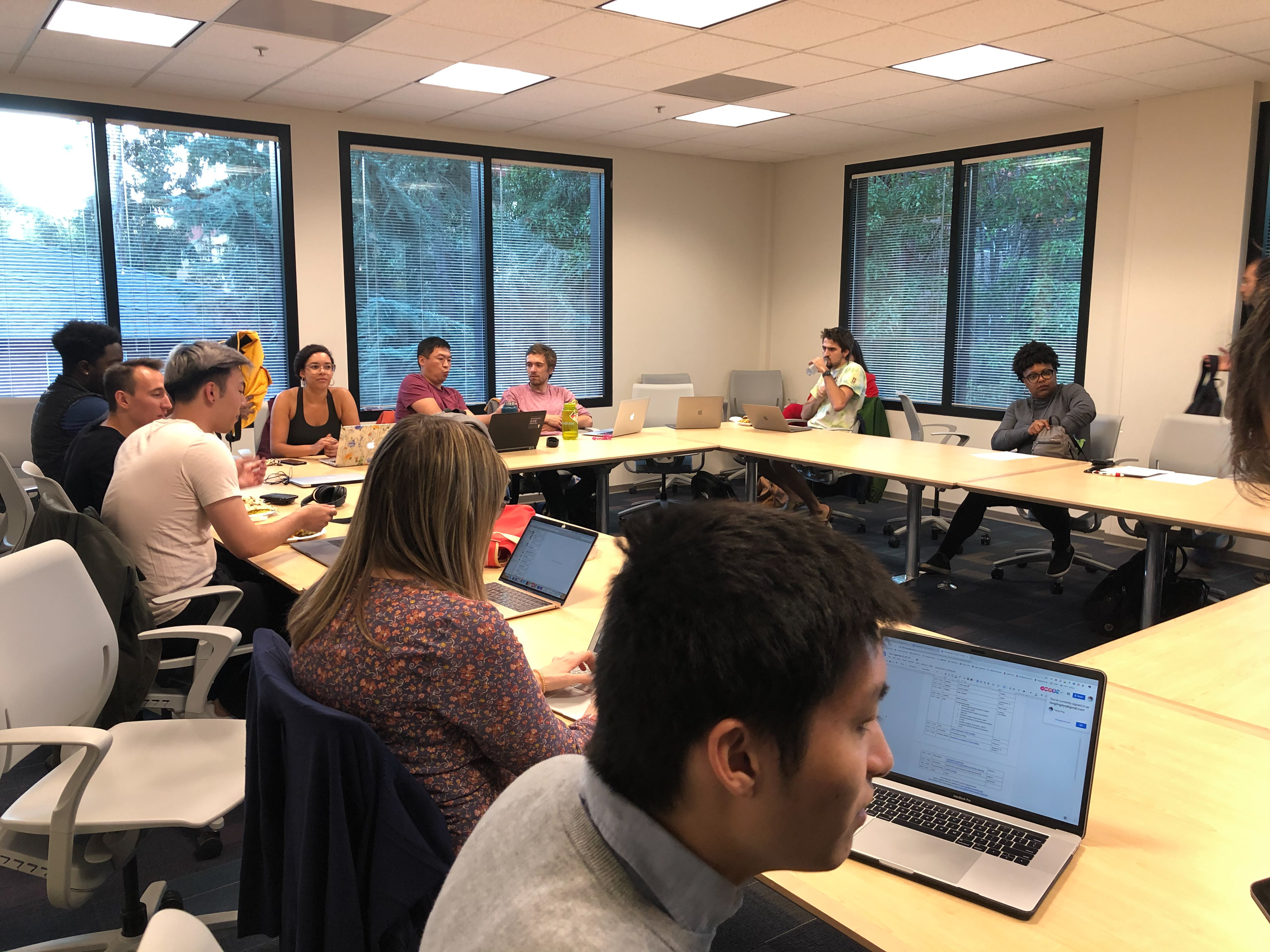In their third meeting of the 2019-20 school year, the Graduate Student Council (GSC) discussed ways to facilitate communication between the Stanford student body and the administration, public safety power shutoffs and a resolution in support of sexual assault victim Chanel Miller.
The Council also swore in two new members: communications co-term John Coffey B.A. ’19 M.A. ’20 and second-year computer science master’s student Adam Keppler.
Chanel Miller resolution
Emma Tsurkov, Associated Students of Stanford University Executive Co-Director of Sexual Violence Prevention and a Ph.D. student in Sociology, presented a resolution supporting Chanel Miller after her choice of quote for the plaque at the site where she was sexually assaulted was denied by the University. Formerly known to the public only as Emily Doe, Miller recently came forward as the victim of rape by former Stanford swimmer and convicted felon Brock Turner.
As part of her agreement with Stanford, Miller was given the liberty to choose any quote from her victim impact statement to be engraved on a plaque in a commemorative garden. However, after denying her first and second choice selected quotes, Stanford provided Miller with a third quote, which she deemed unacceptable.
A petition to install Miller’s memorial plaque was signed by over 1,700 members of the Stanford community, and multiple campus events have been held in solidarity with Miller.
“I find it to be paternalistic and a form of censorship,” Tsurkov said. “People from frats just hang out there and vape Juul pods. The garden has completely lost its purpose.”
Fourth-year theater and performance studies student Kari Barclay ’20 brought up a separate petition that has been circulating throughout the Stanford community regarding Miller’s memoir, “Know My Name.” This petition, which had been signed by 833 members of the Stanford community as of Wednesday night, calls for the inclusion of the memoir in the Three Books program.
Second-year law student Chris Middleton ’21, who was a senior undergraduate student at the time of the incident, noted the importance of fulfilling Miller’s wishes.
“What Stanford is doing is a really petty thing to do, and I think that it’s important to not forget that this happened,” Middleton said. “We owe it to these victims that they do not just turn into objects that will be forgotten.”
R&DE updates
The Residential and Dining Enterprises (R&DE) representatives at the meeting addressed problems regarding the Bay Area power shutoffs instigated by PG&E due to concerns of wildfire hazards. Although no areas on the campus proper are slated to have power interruptions, there are plans in place to address its effects on those living off-campus, representatives said.
Barclay, who lives off-campus in Berkeley, is one of many students who has been affected by the electrical PG&E public safety power shutoffs.
“I’ve just been hanging around on campus while power at my house is out,” said Barclay, who rushed to catch a CalTrain home after the meeting.
In the case of dining staff needing to take time off during the blackout, the R&DE representatives said that they have backup staff members who have been specially trained to replace the dining staff. They reassured the Council that students would have sufficient resources for dining on campus.
Governance at Stanford
Second-year law student Jasmine Yushi Shao ’21 recapped Tuesday’s governance at Stanford meeting. The meeting addressed the effectiveness of the University’s town hall events, in which Stanford administrators will solicit public input on events of campus-wide importance. Shao noted that 95% of town hall attendees have been faculty, and the majority of students attending were those that already held strong opinions on the subject matter.
“It’s important to be able to get the opinions of the student body as a whole,” said Shao, who asked the members of the GSC for alternative ways that students could be incentivized to provide their opinions to the administration.
“I think it would be a good idea to throw a social event, and then make getting the opinions of students a subevent,” second-year computer science master’s student Adam Keppler ’20 said. “That way, students will want to come out and voice their opinions.”
Contact Camryn Pak cpak23 ‘at’ stanford.edu
